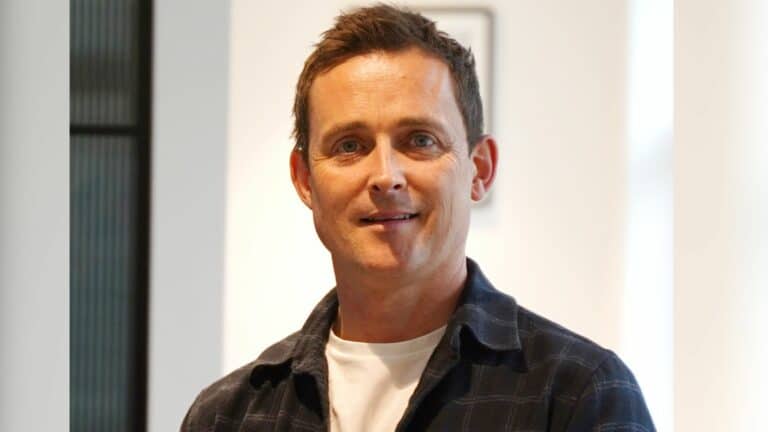Phil Wedgwood is CEO of Engage Solutions Group, a Manchester-based employee engagement platform.
Since launching in 2017, Engage has continued to expand its client base with the likes of The Lowry and Liverpool FC.
With a strong background in computer science and an MBA graduate, Wedgwood started out as a software engineer before rising up the ranks to his current role.
From uncovering all the big job challenges to reflecting on his career pathway, Wedgwood shares a glimpse into his life and career…
How did you first get into your industry?
Growing up, my father was always interested in the latest tech products, so we were the early adopters in having a computer in the house. I was the first in my class to complete my homework on a computer, print it, and bring it to school. This early exposure to the practical benefits of IT sparked my curiosity about how computers work and how they can be used to improve tasks.
Naturally, I decided to pursue a degree in business and IT. During my studies, I spent a year at BT’s research lab in Ipswich. This experience, being immersed in a technology-rich environment, was like being a kid in a candy store. It was a pivotal moment for me, leading me to question the actual purpose of all this technology.
This question shaped my perspective and career path as a business technologist. Even though I love tech, I have always been focused on its practical applications. At BT, I worked in the solutions division, where I had the opportunity to engage with business people and develop bespoke technical solutions. This experience solidified my desire to bridge the gap between technology and business.
What do you love about your job?
I love everything about my job and view it as both a passion and a privilege rather than just work. As the CEO of a fast-growing SaaS company that operates across nine industry sectors and leverages the latest technology, every day is different and dynamic.
One of the things I love most is building and supporting our amazing team. Working with smart, innovative people is incredibly fulfilling. So too is helping brands move beyond employee engagement to creating thriving colleague communities, fostering happier, more productive people, increasing retention and proper employee advocacy.
My role also perfectly blends my passion for both technology and business. Every aspect of running a tech company excites me, from the technological advancements to the strategic business decisions.
Who – or what – has inspired you in your career?
As I said earlier, my father was a pivotal influence on my career. He had a deep interest in IT and invested in computers early on, making our family early adopters of technology. By the time I was 15, we had computers in the house before most people did, and this early exposure ignited my enduring passion for tech and innovation.
In my professional journey, David Watts from BT emerged as a significant mentor who profoundly shaped my career.
Under David’s guidance, I had the remarkable opportunity to run a business division at BT, as well as earlier becoming the first and only person to be promoted off of the graduate scheme within a year. This role offered me incredible exposure, as I was stepping into boardrooms at a young age with big, listed companies and advising them on implementing cutting-edge strategies. It was an exhilarating experience that not only shaped my career but also taught me the importance of pushing boundaries, while recognising when to temper my drive for maximum impact.
What are the biggest challenges about your job?
One of the biggest challenges in my job is the relentless pace of technological change. You can never afford to sleep at the wheel because the landscape is constantly evolving. Countless companies have failed because they couldn’t keep up with the rapid advancements, and witnessing these failures firsthand has left a lasting impact on me.
Living through the bust of companies that didn’t make it has been incredibly tough, highlighting the importance of staying ahead. This challenge, however, is also what I love most about my job. It keeps me on my toes, constantly pushing me to innovate and adapt, ensuring that our company remains at the forefront of the industry.
What skills have been the most crucial to you succeeding in your career so far?
Setting a clear vision and direction for the business has been essential, ensuring that we always have a strong sense of purpose and “why.” This ability to articulate and drive a strategic vision is not a common skill set, as it requires transcending beyond the buckets of specialisation.
Combining technical expertise with business acumen has been crucial. Purely focusing on tech didn’t excite me as much as integrating it with business strategies did. That’s why I needed the skills to be able to sit in a boardroom and discuss business strategy, but then turn around and speak to the tech team to make them feel confident we’d made the right decision.
Many businesses operate in silos, leading to failed IT projects and implementations because they weren’t built right or weren’t even necessary in the first place. Having skills that allow you to cross between both the business and tech side has been the most important in my career so far.
What was your first salary and what could someone getting into the industry expect to earn nowadays?
My first salary was £16k on the BT graduate scheme and I left some 7 years later earning well into six figures. The tech industry is well paid and depending on your skills you should earn £30k.
What education or training would be most useful for someone looking to follow your career path?
I am a firm believer in lifelong learning and constantly acquiring new skills. My educational background includes a degree, a diploma, an MBA, and numerous management training courses. Additionally, I’ve had the privilege of being mentored by several talented individuals, and I thrive on surrounding myself with skilled professionals. Continuously pushing yourself to step outside your comfort zone is essential for growth and success.
Writing two books has also been instrumental in my career, as it allowed me to distill and share my knowledge with others. While there is no guaranteed route to success, a strong understanding of technology is crucial. You can obtain qualifications in various forms, but hands-on experience is invaluable. Equally important is a solid grasp of business principles, which can be gained through formal education and practical experience.
The best way to learn is by doing. Putting yourself in challenging situations where you are forced to adapt and innovate is key. This practical approach, combined with formal education and a commitment to continuous learning, will provide a strong foundation for anyone looking to follow a similar career path.
What advice would you have for someone looking to follow your path?
Passion and interest in technology are fundamental. If you’re genuinely enthusiastic about tech, you’ll always find a role that fits your skills and interests. Moreover, don’t hesitate to reach out to directors and leaders in tech companies. If you don’t ask, you don’t get. Understanding what it’s like to run a company from those who are already doing it can provide invaluable insights and most people are willing to sit down and have a chat.
Engage with people who are already working in areas that interest you. Building your network and learning from others in the field can open up numerous opportunities. This approach has worked well for many, including my eldest son as he’s been able to build his own network at an early age and has landed his first job.
Talk to people, ask questions, and immerse yourself in the industry.













